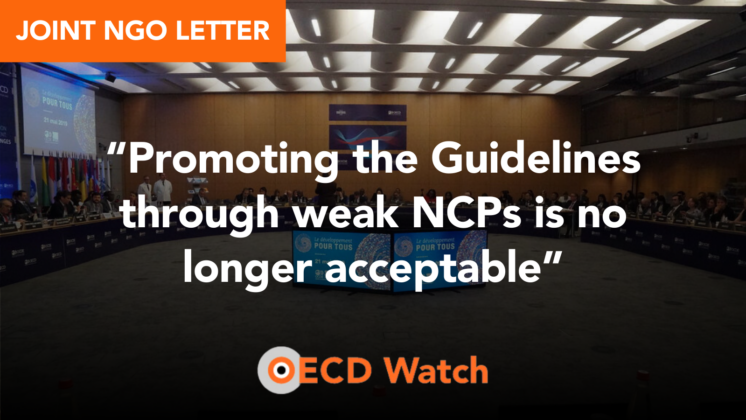The year 2020 saw disappointing outcomes in community- and civil society-led Guidelines complaints, OECD Watch concludes in its new ‘State of remedy’ paper.
OECD Watch State of Remedy 2020
OECD National Contact Points (NCPs) concluded 14 complaints filed by communities or civil society in 2020. Among these, just one reached agreement. A full five were rejected by NCPs without offer of good offices, while seven were accepted but reached no resolution. Meanwhile, Indigenous complainants withdrew one complaint over concerns, among other things, about the NCP’s overly strict confidentiality rules and failure to address security risks for community members.
Every year, OECD Watch publishes a State of Remedy analysis examining the outcomes of complaints concluded by NCPs in the prior year. Each analysis seeks to identify reasons why positive or negative outcomes were achieved.
This year’s fact sheet provides several points:
• Key numbers and facts (including in a table) on the 14 complaints handled, as well as analysis on why each reached or did not reach a positive outcome
• Highlights and lowlights in several of the cases, including interesting facts about remedies achieved or pursued through other grievance proceedings
• Recommendations on how to achieve better outcomes in Guidelines complaints by revising the Guidelines to strengthen and extend standards for MNEs and raise expectations for NCPs.
OECD Watch believes poor outcomes in complaints result first and foremost from poor organisational structures, communications policies, and complaint-handling rules of procedure of NCPs. OECD Watch is urging OECD governments to revise the Guidelines to close gaps in expectations for NCPs — as well as gaps in standards for multinational enterprises.
OECD Watch submission on Guidelines stocktaking
For further analysis on gaps in the OECD Guidelines, please read OECD Watch’s submission to the OECD Working Party on Responsible Business Conduct regarding its 2021 stocktaking on whether the Guidelines are fit for purpose.













